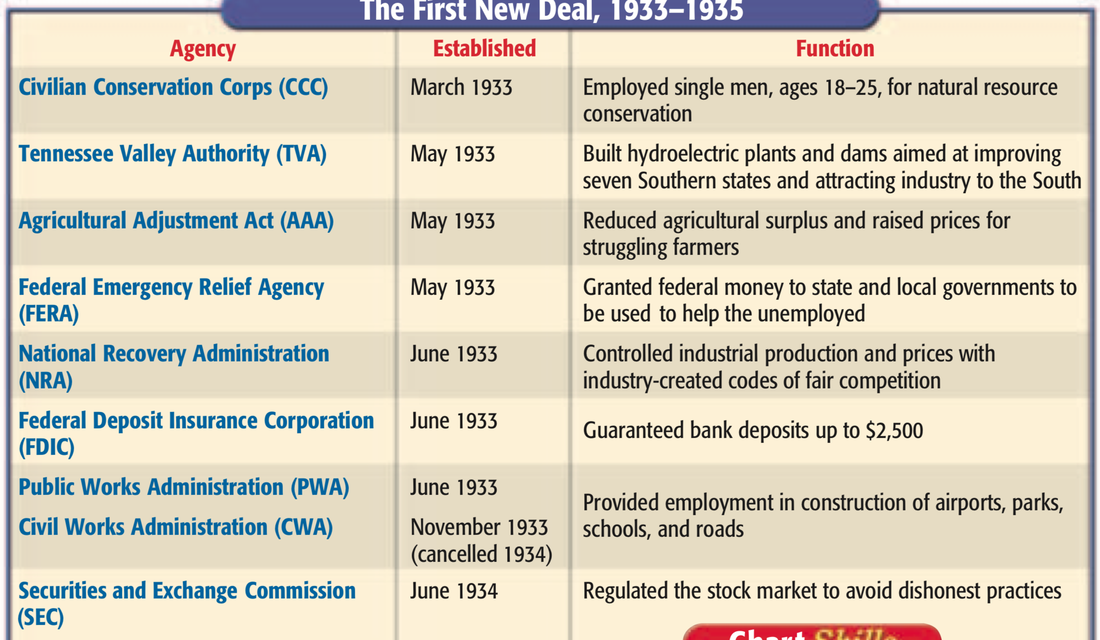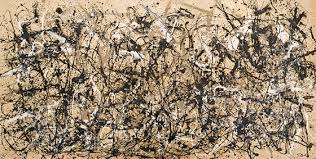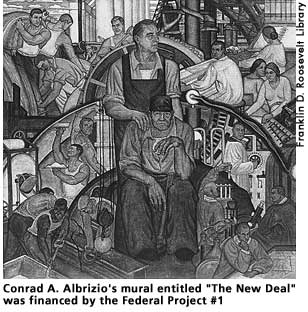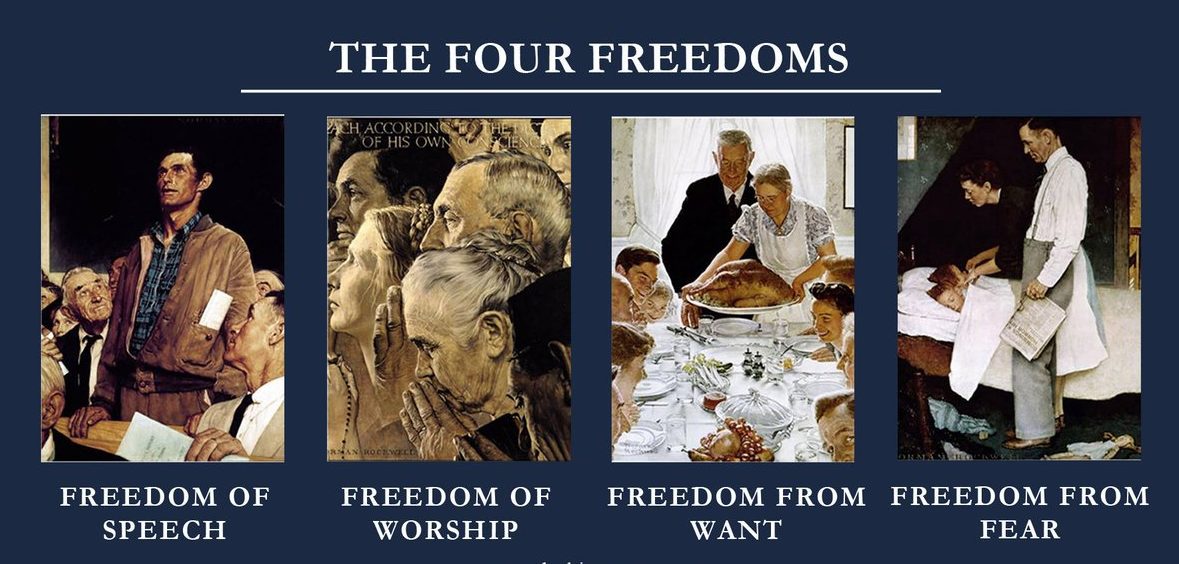second marking period
Student lectures begin this week!
Please see the HOW-to section for more information
7.5 WWI and the treaty of versailles
|
WEEK Nine:
Readings: 5 Step to a 5- Ch 20 TAV Chapter 18 Selected Readings : Jacob Riis- How the Other Half Lives PROGRESSIVISM
IN THE PROGRESSIVE ERA OF THE EARLY 20TH CENTURY, PROGRESSIVES RESPONDED TO POLITICAL CORRUPTION, ECONOMIC INSTABILITY, AND SOCIAL CONCERNS BY CALLING FOR GREATER GOVERNMENT ACTION AND OTHER POLITICAL AND SOCIAL MEASURES. LINK: HOW THE OTHER HALF LIVES (SELECTED PASSAGES )MULTIPLE CHOICE ON PROGRESSIVISM MULTIPLE CHOICE ON IMPERIALISM MATCHING QUIZ ON AFRICAN AMERICANS IN THE PROGRESSIVE ERA The Progressive Era (1895-1914) THE ORIGINS OF PROGRESSIVE THE GOALS OF PROGRESSIVES URBAN REFORMS THE PROGRESSIVES AT THE STATE LEVEL WOMEN AND PROGRESSIVE REFORMING THE WORKPLACE THE SQUARE DEAL OF THEODORE ROOSEVELT PROGRESSIVISM UNDER WILLIAM HOWARD TAFT THE 1912 PRESIDENTIAL ELECTION THE PROGRESSIVE LEGACY OF WOODROW WILSON DID PROGRESSIVISM SUCCEED? CHAPTER REVIEW
| ||||||||||||||||||||||||||||||||||||||||||||||||||||||||||||||||||
THE TWENTIES: The Lost Generation, Laissez fair, and normalcy.
WEEK Eleven:
Readings:
Brinkley Chapter 22
TAV Chapter 20
Selected Readings :
HemingwayThe Sun also Rises
Fitzgerald- Gatsby or This Side of Paradise.
Barthes- Death of the author
The American Plan and the Open Shop
American Foreign Policy in the 20's
Readings:
Brinkley Chapter 22
TAV Chapter 20
Selected Readings :
HemingwayThe Sun also Rises
Fitzgerald- Gatsby or This Side of Paradise.
Barthes- Death of the author
The American Plan and the Open Shop
American Foreign Policy in the 20's
American culture and society in the 1920s were marked by a wave of new lifestyles and ideas. While the movie industry produced new celebrities and jazz music became popular, literature flourished and flappers defined a social trend. Amidst the speakeasies, jazz, and jitterbugs, Americans began to stray from traditional values as the culture changed.
|
| ||||||||||||||||||||||||
|
REPUBLICAN LEADERSHIP IN THE 1920s
Throughout the 1920s the Republican party was truly dominant at the national level. Both houses of Congress were under Republican control, the three presidents of the decade (Warren G. Harding, Calvin Coolidge, and Herbert Hoover) were all Republicans, and for most of the decade the Supreme Court was dominated by Chief justice (and ex-president) William Howard Taft. Government policies throughout the decade were almost exclusively pro-business; Republican candidates at all levels during this decade had to be acceptable to the business community. THE SCANDALS OF THE HARDING ADMINISTRATION
The Harding administration may have been the most scandal-ridden administration in American political history. No principal whatsoever was involved in these scandals; the participants were only interested in money. There is no knowledge that Harding participated in any way in these scandals; his biggest sin was probably appointing political cronies from his Ohio days to important government positions in his administration and not supervising them. The scandals of the Harding administration were numerous, Charles Forbes, the director of the Veteran’s Bureau, stole or horribly misused nearly $250 million of government money; he was indicted for fraud and bribery concerning government hospital supply contracts. Harding allowed Forbes to go abroad and to resign, although he eventually did go to jail. Attorney General Harry Daugherty had taken bribes from businessmen, bootleggers, and many others. Daugherty failed to go to jail when a hung jury was unable to convict him. The worst of the scandals was the Teapot Dome scandal. Secretary of the Interior Albert Fall maneuvered to have two oil deposits put under the jurisdiction of the Department of the Interior; one of these was a reserve in Wyoming called Teapot Dome. Fall then leased these reserves to private companies and got large sums of money from them for doing it. Fall was convicted and finally went to prison in 1929. |
THE PRESIDENCY OF WARREN G. HARDING
Many presidential scholars claim that Warren G. Harding was one of the least qualified men ever nominated for the presidency by a major party in America. Harding, a senator from Ohio, was not even mentioned as a possible candidate before the Republican convention of 1920. Harding finally became the Republican nominee after the party bosses determined that he would be a candidate they could control. He was opposed in the national election by Governor James Cox of Ohio, Harding ran on a platform of low taxes, high tariffs, farmer’s assistance, and opposition to the League of Nations. Where Governor Cox (and his running mate, Assistant Secretary of the Navy Franklin D. Roosevelt) ran a strong and aggressive campaign, Harding was generally content to campaign from own back porch. He ended up winning 61 percent of the national vote. Americans found something they liked in both the message and style of Harding: His message was essentially that it was time to pull back from '‘schemes” to change the world (the postwar plans of Woodrow Wilson) and “social experiment” (all of the programs of the progressives). Harding’s call for a period of “normalcy” struck a chord with Americans and seemed to put the final nail in the coffin of progressivism in American thought. During the presidency of Harding, efforts were made to prevent America from having any involvement with the League of Nations or any other provision of the Versailles Treaty. One of the outstanding appointments made by I larding was the naming of former Supreme Court Justice Charles Evans Hughes as Secretary of State. Hughes’ major accomplishment as Secretary of State took place at the Washington Conference of 1921, At this meeting diplomats from the United States, Japan, China, the Netherlands, Belgium, Portugal, France, Great Britain, and Italy met to discuss the possible elimination of further naval development and affairs in China and the rest of Asia. All nine nations agreed to respect the independence of China (and maintaining the Open Door in China), a major goal of American business interests. The United States, Britain, France, Japan, and Italy all agreed to halt the construction of naval vessels (at the time Hughes did not realize that this gave naval superiority in the Pacific to the Japanese). |
|
Week Twelve: Readings: Brinkley Chapter 23 TAV Chapter 22 Selected Readings : Freakonomics |
| ||||||
The Great Depression and the New Deal
THE AMERICAN ECONOMY OF THE 1920s: THE ROOTS OF THE GREAT DEPRESSION
THE STOCK MARKET CRASH
THE SOCIAL IMPACT OF THE GREAT DEPRESSION
THE HOOVER ADMINISTRATION AND THE DEPRESSION
THE 1932 PRESIDENTIAL ELECTION
THE FIRST HUNDRED DAYS
THE SECOND NEW DEAL
THE PRESIDENTIAL ELECTION OF 1936
OPPONENTS OF FRANKLIN ROOSEVELT AND THE NEW DEAL
THE LAST YEARS OF THE NEW DEAL
THE EFFECTS OF THE NEW DEAL
NEW DEAL CULTURE
CHAPTER REVIEW
THE AMERICAN ECONOMY OF THE 1920s: THE ROOTS OF THE GREAT DEPRESSION
THE STOCK MARKET CRASH
THE SOCIAL IMPACT OF THE GREAT DEPRESSION
THE HOOVER ADMINISTRATION AND THE DEPRESSION
THE 1932 PRESIDENTIAL ELECTION
THE FIRST HUNDRED DAYS
THE SECOND NEW DEAL
THE PRESIDENTIAL ELECTION OF 1936
OPPONENTS OF FRANKLIN ROOSEVELT AND THE NEW DEAL
THE LAST YEARS OF THE NEW DEAL
THE EFFECTS OF THE NEW DEAL
NEW DEAL CULTURE
CHAPTER REVIEW
|
Readings: Causes of the Great Depression
Readings: Brinkley Chapter 23 TAV Chapter 22 Selected Readings |
|
I. Franklin Delano Roosevelt
A. Early Years
1. Raised in upper class family in Hyde Park N.Y.
2. Attended Harvard and Colombia
3. Lawyer then active in NY politics
4. 1912 - Assistant Sec. Of Navy Appointed by WILSON
5. 1918 Narrowly won Governorship of NY,
6. 1920 - VP Candidate with James A. Cox
7. 1921 - Contracted Polio, lost use of legs. This deeply effected Roosevelt. Now he truly knew what human suffering was all about. He could identify. He was also a fighter and a winner. He overcame his handicap and this later would inspire Americans during the depression.
8. 1930 Reelected Governor of New York State - His innovative programs gained national attention and were eventually called the Little New Deal - NY Model
9. Ran for Pres. In 1932 - Used song: "Happy Day's Are Here Again." Pledged to America; "I Pledge to you, I pledge myself, to a new deal for the American people!"
B. What did Roosevelt do when he got elected?
1. Inauguration Speech: Told America "We have nothing to fear but fear itself!" He wanted to inspire optimism and hope. He did not want America paralyzed by fear. He was a man of action.
2. Appointed the "Brain Trust" - These were a group of brilliant social, economic and political thinkers who comprised Roosevelt's cabinet. He surrounded himself with the best, not just political allies and supporters.
3. First Hundred Days - For the first hundred days of his administration Roosevelt and his Brain Trust where a whirlwind of activity. Legislation was introduced and passed at a furious pace as Congress mostly acted as a rubber stamp. Roosevelt called Congress into session and asked for executive power to wage war against poverty and pessimism. He said he wanted a power "as great as the power that would be given me if we were in fact invaded by a foreign foe." At first he ordered a bank holiday, which closed every bank in the nation and stopped people from withdrawing all of their money. This ended the panic. He then signed legislation called the Emergency Banking Act. This closed all of the insolvent lending institution and only reopened the solvent ones. While many lost money at least the panic was eased.
A. Early Years
1. Raised in upper class family in Hyde Park N.Y.
2. Attended Harvard and Colombia
3. Lawyer then active in NY politics
4. 1912 - Assistant Sec. Of Navy Appointed by WILSON
5. 1918 Narrowly won Governorship of NY,
6. 1920 - VP Candidate with James A. Cox
7. 1921 - Contracted Polio, lost use of legs. This deeply effected Roosevelt. Now he truly knew what human suffering was all about. He could identify. He was also a fighter and a winner. He overcame his handicap and this later would inspire Americans during the depression.
8. 1930 Reelected Governor of New York State - His innovative programs gained national attention and were eventually called the Little New Deal - NY Model
9. Ran for Pres. In 1932 - Used song: "Happy Day's Are Here Again." Pledged to America; "I Pledge to you, I pledge myself, to a new deal for the American people!"
B. What did Roosevelt do when he got elected?
1. Inauguration Speech: Told America "We have nothing to fear but fear itself!" He wanted to inspire optimism and hope. He did not want America paralyzed by fear. He was a man of action.
2. Appointed the "Brain Trust" - These were a group of brilliant social, economic and political thinkers who comprised Roosevelt's cabinet. He surrounded himself with the best, not just political allies and supporters.
3. First Hundred Days - For the first hundred days of his administration Roosevelt and his Brain Trust where a whirlwind of activity. Legislation was introduced and passed at a furious pace as Congress mostly acted as a rubber stamp. Roosevelt called Congress into session and asked for executive power to wage war against poverty and pessimism. He said he wanted a power "as great as the power that would be given me if we were in fact invaded by a foreign foe." At first he ordered a bank holiday, which closed every bank in the nation and stopped people from withdrawing all of their money. This ended the panic. He then signed legislation called the Emergency Banking Act. This closed all of the insolvent lending institution and only reopened the solvent ones. While many lost money at least the panic was eased.
|
|
| ||||||||||||||||||
| extending_the_power_of_the_president.ppt | |
| File Size: | 1673 kb |
| File Type: | ppt |
|
WEEK Thirteen:
Thanksgiving- |
|
WEEK FOURTEEN:
Readings: Brinkley Chapter 24 TAV Chapter 23 |
| ||||||
Federal Project Number One
|
Known as "Federal One" for short, Federal Project Number One was created in 1935 as a subdivision of the Works Progress Administration (WPA) that sought to extend the relief of the New Deal to artists, actors, writers, and musicians. Although the arts had never been high on FDR's list of priorities, he felt funding them would provide a double benefit. Not only would it put legions of unemployed artists back to work, but their creations would invariably entertain and enrich the larger population. If FDR was only lukewarm about Federal One, his wife more than made up for it with her enthusiasm. Eleanor Roosevelt felt strongly that American society had not done enough to support the arts, and she viewed Federal One as a powerful tool with which to infuse art and culture into the daily lives of Americans. ER lent her wholehearted support to the creation of the Federal One programs, lobbied FDR to sign the executive order creating them, praised the projects in her columns and speeches, and defended them against congressional critics.
|
- The New Deal
What did Roosevelt mean by relief, recovery and reform?
Relief--Immediate action taken to halt the economies deterioration.
Recovery--"Pump - Priming" Temporary programs to restart the flow of consumer demand.
Reform--Permanent programs to avoid another depression and insure citizens against economic disasters.
Bank Holiday -Declared so that the panic would be stopped.Agricultural Adjustment Act (AAA)-Taxed food processors and gave the money directly to farmers as a payment for not growing food. This decreased supply so price would go up.
Securities & Exchange Commission (SEC)-Permanent Agency set up to monitor stock market activity and ensure that no fraud or insider trading was taking place.
Emergency Banking Act-Closed the insolvent banks and only reopened the solvent ones.
National Industrial Recovery Act (NIRA)-Created the NRA (National Recovery Administration) a consortium of businesses organized by the government and given the power to set rules and regulations for the economy. Members of the NRA displayed a blue eagle.
Federal Deposit Insurance Corporation (FDIC)-Permanent Agency designed to insure depositors money in savings banks. Originally insured up to $5,000 per depositor today it has increased to $100,000.
Federal Emergency Relief Act (FERA) -Gave immediate help to those that needed it in the form of cash payments.
Home Owners Loan Corp.-Gave loans to home owners so they could pay their mortgages. This prevented people from going homeless and prevented banks from going under.
Social Security Administration-Permanent agency designed to ensure that the older segment of society always would have enough money to survive. The key here is that they would then also be able to spend throughout their lives.
Civil Works Administration (CWA)-Provided temporary jobs repairing roads and bridges.
Works Progress Administration (WPA)-Provided long term government jobs building schools and other public works projects.
National Labor Relations Act and National Labor Relations Board (NLRA/NLRB)-Otherwise known as the Wagner Act it helped unions and thus helped workers. This acted created the NLRB (National Labor Relations Board) which enforced labor law and made sure that fair business practices where upheld.
Civilian Conservation Corps (CCC)-Temporary jobs to unmarried single adults filling sand bags and helping out at disaster type situations. Participants lived in barracks type housing.
Tennessee Valley Authority (TVA)-Agency created to build dams in the Tennessee river valley. These dams provided more stable irrigation and cheap hydroelectric power.
- Challenges to the New Deal
- The End of the Depression
| fdr_millionaire.ppt | |
| File Size: | 2971 kb |
| File Type: | ppt |
| new_deal_millionaire.ppt | |
| File Size: | 2971 kb |
| File Type: | ppt |
| new_deal_test_.docx | |
| File Size: | 125 kb |
| File Type: | docx |
| dbq_new_deal.docx | |
| File Size: | 3996 kb |
| File Type: | docx |
World War two
|
WEEK Five:
Readings: Brinkley Chapter 25 TAV Chapter 24 Appeasement
| |||||||||||||||||||
| wwii_millionaire.ppt | |
| File Size: | 2968 kb |
| File Type: | ppt |






